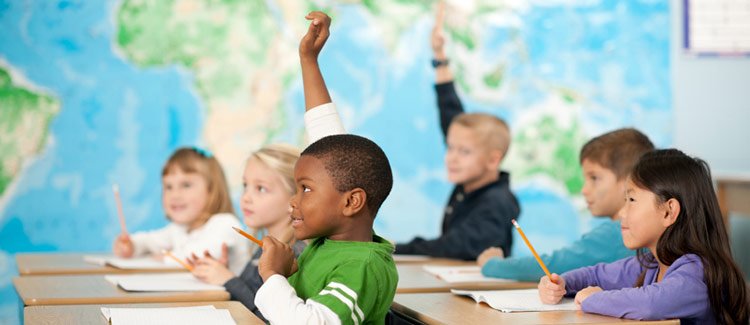The importance of social skills development in Kindergarten
Wiki Article
Exploring the Conveniences of Preschool Programs: A Comprehensive Guide to Very Early Education And Learning
Preschool programs play an essential duty in forming a youngster's very early instructional experience. They give an organized atmosphere where young learners can create crucial social skills, emotional strength, and cognitive capabilities. These foundational abilities are necessary as kids move right into more official education. Understanding just how these programs contribute to a youngster's development reveals much concerning their long-lasting educational trajectory. What details benefits do these very early experiences provide, and just how do they influence a youngster's future?The Importance of Social Skills Growth
While many elements of very early education and learning concentrate on academic skills, the advancement of social abilities in preschool programs is equally vital. Social abilities encompass the ability to interact properly, team up with peers, and navigate social circumstances, all of which are important for a child's total growth. In kindergarten, children find out to share, take turns, and solve conflicts, fostering a sense of area and belonging. These experiences allow young learners to form friendships and establish compassion, laying the groundwork for positive relationships in the future.Teachers play an essential duty in helping with social skill development with structured tasks and assisted interactions. Via group tasks and play, children practice crucial abilities such as paying attention, working out, and understanding varied perspectives. In addition, these communications aid kids construct confidence and self-worth, vital parts for their personal and academic trips. In general, supporting social abilities in kindergarten enriches children's experiences and prepares them for the complexities of social life beyond school.

Building Emotional Durability in Young Learners
Building psychological resilience in young learners is essential to their general health and success in numerous facets of life. Preschool programs provide a structured environment where youngsters can find out to navigate their emotions successfully. Via led tasks and interactions, educators aid youngsters determine and express their feelings, fostering a feeling of self-awareness.These programs usually consist of methods for coping with obstacles, such as analytic tasks and role-playing situations that prepare children for real-life situations. By encouraging participation and compassion, young learners create solid social links, which are vital for psychological assistance.
Educators play a critical function in modeling resilience by showing how to take care of stress and difficulty. As youngsters observe these behaviors, they internalize valuable coping mechanisms, furnishing them to handle future emotional difficulties with higher simplicity. Generally, nurturing emotional resilience in very early education lays a solid foundation for lifelong mental wellness and versatility.
Enhancing Cognitive Capabilities Through Structured Knowing
As youngsters take part in structured learning experiences within preschool programs, their cognitive capabilities are substantially enhanced. These programs introduce age-appropriate tasks that promote critical reasoning and problem-solving abilities. Hands-on activities such as challenges and structure blocks promote spatial understanding and logical reasoning.Interactive narration and team discussions foster language advancement, expanding vocabulary and comprehension. Via organized routines, special info youngsters learn to comply with directions, enhancing their exec working skills, which are crucial for future scholastic success.
Social communications within these programs likewise play a significant duty, as youngsters learn to collaborate and connect properly, further increasing cognitive growth.
In addition, integrating play-based discovering allows kids to check out concepts in an enjoyable and interesting way, strengthening their understanding and retention of understanding. Generally, structured knowing in kindergarten lays a solid structure for cognitive growth, preparing children for the obstacles of greater education and learning.
Cultivating a Love for Lifelong Understanding

Furthermore, favorable communications with instructors and peers add to an environment where discovering is considered as fulfilling and pleasurable. This helpful environment aids infuse intrinsic motivation and strengthens the idea that education is a constant trip as opposed to a location.
As youngsters uncover their strengths and interests, they are most likely to go after understanding beyond the classroom, laying the foundation for a lifelong commitment to knowing. Ultimately, kindergarten programs play a vital function in shaping enthusiastic students who embrace instructional chances throughout their lives.
Getting Ready For Future Academic Success
While fundamental skills are important for very early students, kindergarten programs additionally play a crucial function in preparing youngsters for future scholastic success. These programs present vital principles such as literacy and numeracy, assuring that youngsters create the cognitive capacities necessary for more sophisticated knowing. By taking part in structured tasks, pupils improve critical reasoning and analytical abilities, laying a solid foundation for their instructional trip.Moreover, preschool fosters social-emotional growth, enabling children to navigate collaborative jobs and develop relationships with peers. This collective learn this here now environment imparts a sense of belonging and improves confidence, which is vital for academic perseverance.
Additionally, direct exposure to diverse discovering experiences in kindergarten cultivates flexibility, equipping kids to take on various topics and obstacles in subsequent qualities (Private School). Inevitably, by giving a versatile very early education, kindergarten programs ensure that youngsters are not only all set for very first quality but additionally planned for continued academic accomplishment throughout their instructional professions
Often Asked Inquiries
What Age Is Ideal for Starting Kindergarten Programs?
The suitable age for beginning kindergarten programs is usually in between 5 and 6 years of ages. This age permits youngsters to develop important social, emotional, and cognitive skills, preparing them for future academic success and personal growth.How Do I Choose the Right Kindergarten Program for My Child?
To pick the right kindergarten program, one should find more info consider factors such as educational program, educator credentials, course dimension, place, and the institution's approach. Observing the atmosphere and gathering feedback from other moms and dads can additionally be valuable.Exist Any Type Of State Requirements for Kindergarten Registration?
Several states have specific demands for preschool registration, consisting of age limitations and documentation such as birth certifications or evidence of residency (Grade School Peoria). Moms and dads ought to consult their local education and learning authority to comprehend the precise criteria in their areaWhat Should Moms and dads Expect During a Regular Kindergarten Day?
Throughout a regular kindergarten day, parents can anticipate structured tasks including circle time, imaginative play, standard academic lessons, snack breaks, and social interaction, all designed to foster discovering and growth in a caring environment.Exactly How Can Moms And Dads Support Discovering at Home in Enhancement to Kindergarten?
Moms and dads can sustain discovering in your home by taking part in normal analysis, incorporating instructional games, developing a consistent regimen, encouraging curiosity through inquiries, and producing a favorable, nurturing atmosphere that promotes expedition and creative thinking.Preschool programs play a critical duty in forming a youngster's very early academic experience. Preschool programs supply an organized atmosphere where children can discover to navigate their emotions properly. As children engage in organized discovering experiences within preschool programs, their cognitive capabilities are significantly improved. By engaging kids in diverse activities-- such as narration, hands-on experiments, and joint jobs-- kindergarten programs grow interest and exploration. While fundamental skills are critical for very early students, preschool programs additionally play an essential function in preparing youngsters for future scholastic success.
Report this wiki page